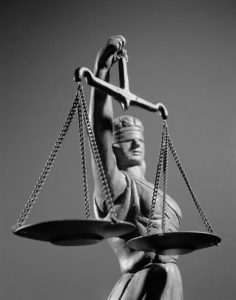The second reflection in the Isaiah series is "Two Cities, Unquenchable Fire, & Glorious Future." The talk (17 mins) covers 1:21-31. The version on which this series is based is the ESV (English Standard Version).
Click on the arrow to play the podcast, or you can use the "download" icon to download the podcast (if available). You can also right click here, in order to save the audio file and listen later.
 Two Cities, Unquenchable Fire, Glorious Future
Two Cities, Unquenchable Fire, Glorious Future
Review (from reflection 1): Sin is serious. In particular, idolatry and social injustice two sides of a coin. God punishes his OT people through foreign invaders. But there is hope—if they will listen, reason, and be obedient, since God is reasonable.
We discovered a wide variety of imagery and illustrations: lawsuit, family, animals, severe bruising, Sodom & Gomorrah, trampling of the temple courts, snow, wool, invasion, washing...
As 1:16-17 insists, we aren't clean in God’s eyes unless we relate to our neighbor with justice. From racism to economic oppression, God's people need to be concerned about justice. This isn't a secondary concern for a true follower of Christ! To fail to do so brings judgment. Obviously, with these truths in mind, many professing Christians in our day are living in fantasy land!
Reflections on 1:21-31
vs.21-22—Jerusalem as a harlot – also 23:15-18. The image of spiritual adultery is even more developed in Jeremiah and (especially) Hosea. How Jerusalem has fallen from justice, righteousness, faithfulness! See Matt 23:23. The dilution of wine / impure alloy of silver represents the sin (esp. injustice) characterising society.
v.23-25—Corrupt leaders nearly always ignore the poor and marginalised. They tend to view the populace as a means of personal enrichment. God’s vengeance is justified. (Enemy = God’s people; the Lord is the one pummelling his people—their body battered, bruised, bloody. Smelting is painful, yet necessary if there is to be a return to righteousness. See Heb 12:11.
vv.26-27—Theme of the two cities – also in Galatians, Hebrews, Revelation, and elsewhere in Isaiah (Isa 24, 35, 55…). "Judges as at first"—pointing to a better time (chaotic as it was) when there was no monarch (see 1 Sam 8)? Jerusalem / Judah would not be redeemed not by works alone, but neither would they be redeemed without justice. Repentance is key.
 vv.28-31—Those who forsake the Lord will be consumed. Oaks are associated with idolatry. Unquenchable fire is also the final image of Isaiah (Isa 66)—not an image of torture or torment, but of punishment and destruction.
vv.28-31—Those who forsake the Lord will be consumed. Oaks are associated with idolatry. Unquenchable fire is also the final image of Isaiah (Isa 66)—not an image of torture or torment, but of punishment and destruction.
Conclusion
In chapter 1 we’ve come across most of the themes in the entire book of Isaiah. A short list: idolatry / injustice, the two cities, the emptiness of mere religion, caring for the needy, the extra responsibility of leaders, God's use of a foreign nation to discipline national Israel, and God’s willingness to forgive, if we repent.
Application
If we aren't to end up like Judah and Jerusalem, we should
- Take justice seriously – this isn't not just an OT theme.
- Take public health seriously. Wash hands (pandemic or not). No littering, or polluting, but responsible and biblical ecology. Care for the sick who are helpless in a pandemic. Try to stay informed about the issues. But don’t act like you’re an expert—unless you’re actually qualified.
- Sin is the most dangerous virus – virulent and highly contagious.
- No matter how messed up society is, maintain personal integrity—doing what is right, obeying the Lord… caring for others.
Choose your city! There are only two options: faithful or unfaithful. The judgment of unquenchable fire is reserved for God's enemies (including his own people), yet a glorious future is in reach.
Next: The Mountain of the Lord and the Holes of the Ground








